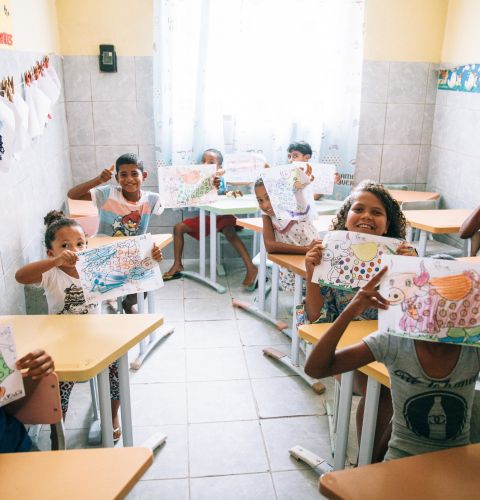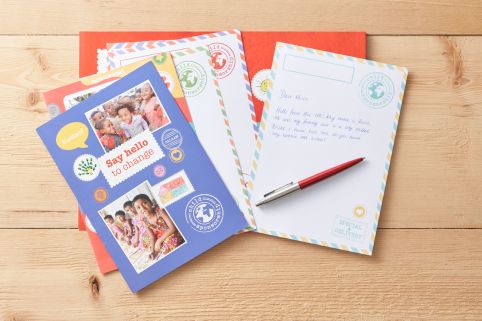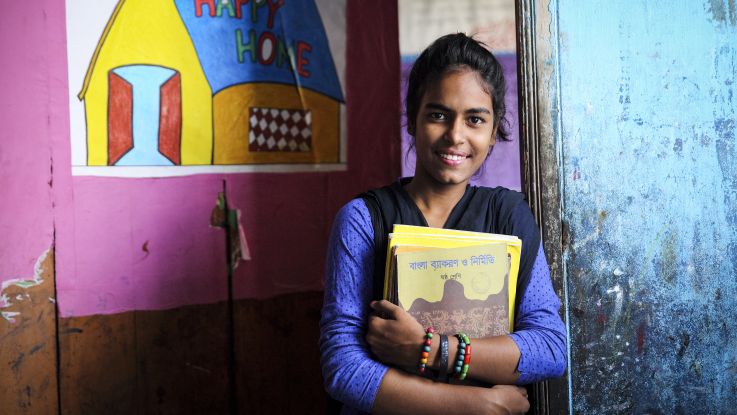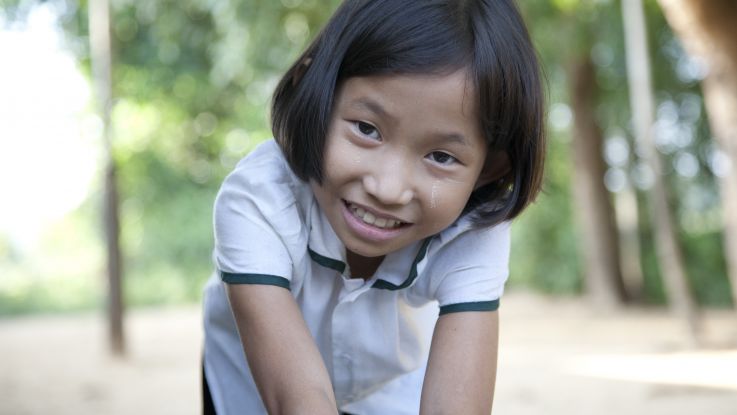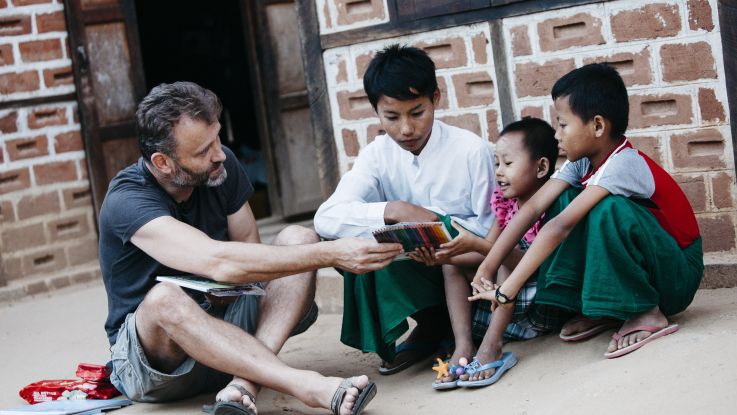ActionAid has almost 50 years of experience changing the lives of children and communities through child sponsorship.
Child sponsorship is not just a band-aid solution; it's a viable route out of poverty. We have a robust and evidence-based approach to providing support to countries around the world.
We work hand in hand with local communities to ensure the solutions we implement are long-term, feasible, appropriate and sustainable, ensuring that the work we do empowers communities to become self-sufficient.
Child sponsorship provides children and whole communities with secure access to food, water, education, healthcare and the opportunity to earn a living.
Here's everything you need to know about what sponsoring a child means, how it works and how we use your sponsorship funds to change lives.
Child sponsorship: your questions answered
What will my child sponsorship pay for?
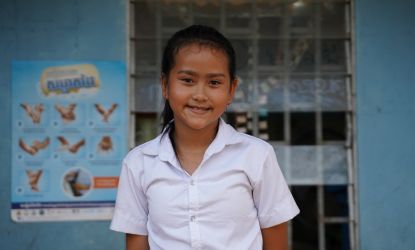
12-year-old Ouk benefits from sponsorship in Cambodia.
Cindy Liu/ActionAid
How child sponsorship is helping girls like Ouk
Twelve-year-old Ouk lives in a village in Kampot, Cambodia on the frontline of the climate crisis.
Extreme weather, erratic rainfall and rising sea levels in Cambodia are destroying traditional ways of earning a living such as fishing and farming.
And when livelihoods are affected, it's often girls who are pulled out of school to help families survive by supporting household chores or doing odd jobs to make ends meet.
But child sponsorship is helping girls like Ouk to stay in school and receive the education they need.
Thanks to ActionAid’s support, Ouk's school has been able to provide classes on vegetable-growing and gardening so that she can help her family adjust to the changing climate.
Page updated 6 February 2025
